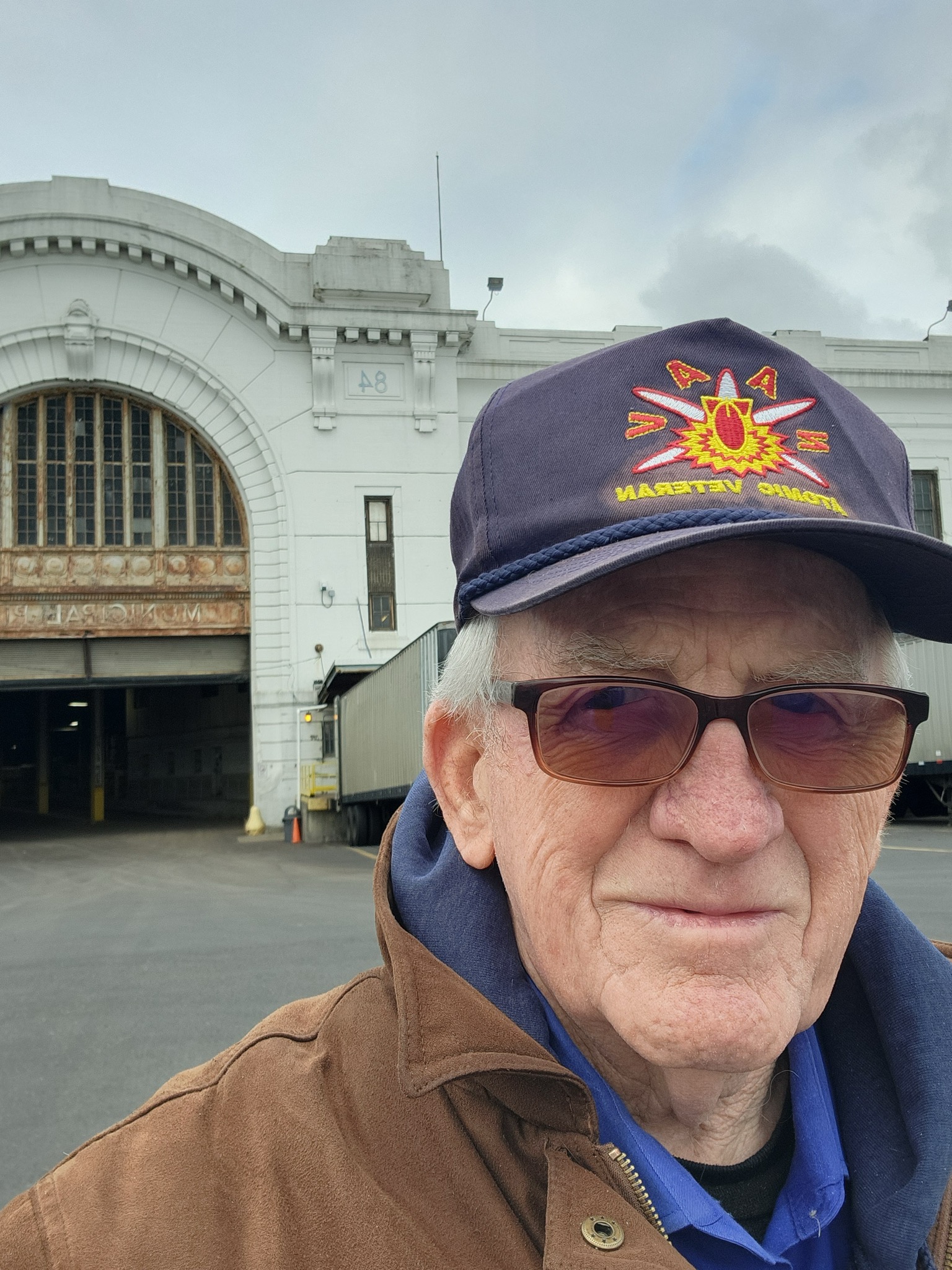John McCabe: A True Lifetime Learner
 For John McCabe, the importance of education has been woven into the fabric of his life since he was about 19 years old. While serving in the U.S. Army from 1960 to 1962, John came to truly understand the value of learning and has not looked back since. At 82 years old, he is taking a class at CCP in addition to working full time and caring for several family members.
For John McCabe, the importance of education has been woven into the fabric of his life since he was about 19 years old. While serving in the U.S. Army from 1960 to 1962, John came to truly understand the value of learning and has not looked back since. At 82 years old, he is taking a class at CCP in addition to working full time and caring for several family members.
“I’m a big fan of education and the classroom,” John said.
Though he is already a published writer with a college degree, John enrolled in a screenwriting course at CCP to take his writing in a new direction.
“My writing process is enhanced by the discovery of how to go from prose to screenwriting,” John said about the course. “There is a critical use of present tense in the style that needed to be understood. We do that by example and trial and error methods in workshops and peer review.”
John has been adapting one of his novels, REIKO AND THE VISITOR, into a screenplay throughout the course of the Fall 2024 semester. In October, he also participated in our Drop the Mic competition with a spoken word piece inspired by the same story.
“I owe much to the hard work of the other students and how courteous and involved they became. They work hard and smart, and it rubs off,” John said, about his classmates in the screenwriting course.
The stories that John writes are mostly inspired by the years of his long life. He embraces growing up in Philadelphia and his experiences serving in the U.S. Army. John said he and 600 infantrymen were unknowingly subjected to atomic bomb testing by the Army when his company of soldiers was sent to the desert in Nevada and told they were standing guard. The next thing he knew, an atomic bomb had been exploded 2.5 miles away from where he stood, with only his standard military gear and field glasses as protection.
That nuclear shock was followed by an order to get into a shallow trench where tactical nuclear bombs were detonated 900 meters in front of them. John said that he could see the bones in his hands when the atomic bomb flash erupted. Then, John said, the troops were ordered to charge ground zero, this time with only their standard military gear, and no protective field glasses.
John said that since then, he has undergone 46 surgeries to manage skin and other conditions, which he believes he developed from nuclear exposure. John has used his writing to tell his personal story and experience with nuclear weapons. John said, “My purpose in writing this is to bring out the other side of what happened in the Nevada desert and the historic cities of Hiroshima and Nagasaki.”
John’s works are mostly fiction. “In order to tell the truth about things, the best thing you can do is write fiction,” John said. And that is exactly what he has spent his life doing.
Though John has degrees from University of Pennsylvania and Bucks County Community College, he said he is so glad that after 28 years he finally decided to take a course here at CCP. He spoke especially fondly of his experience participating in Drop the Mic.
“In all my years of education, I never saw what I saw at Drop the Mic. The expression was so free, and the content of the expression was uninhibited,” John said. “The judgment by the five professors was the most accurate, most insightful, and perhaps the most intelligent feedback I ever heard from college professors.”
John hopes to enroll in more courses at CCP in the future to continue evolving in his writing. “I am going to see if I can enroll in an introductory course on the Japanese language next semester,” John said. Though it can be challenging to balance a college course with everything else going on in his life, John is always looking for his next learning experience.

“My writing process is enhanced by the discovery of how to go from prose to screenwriting,” John said about the course. “There is a critical use of present tense in the style that needed to be understood. We do that by example and trial and error methods in workshops and peer review.”






